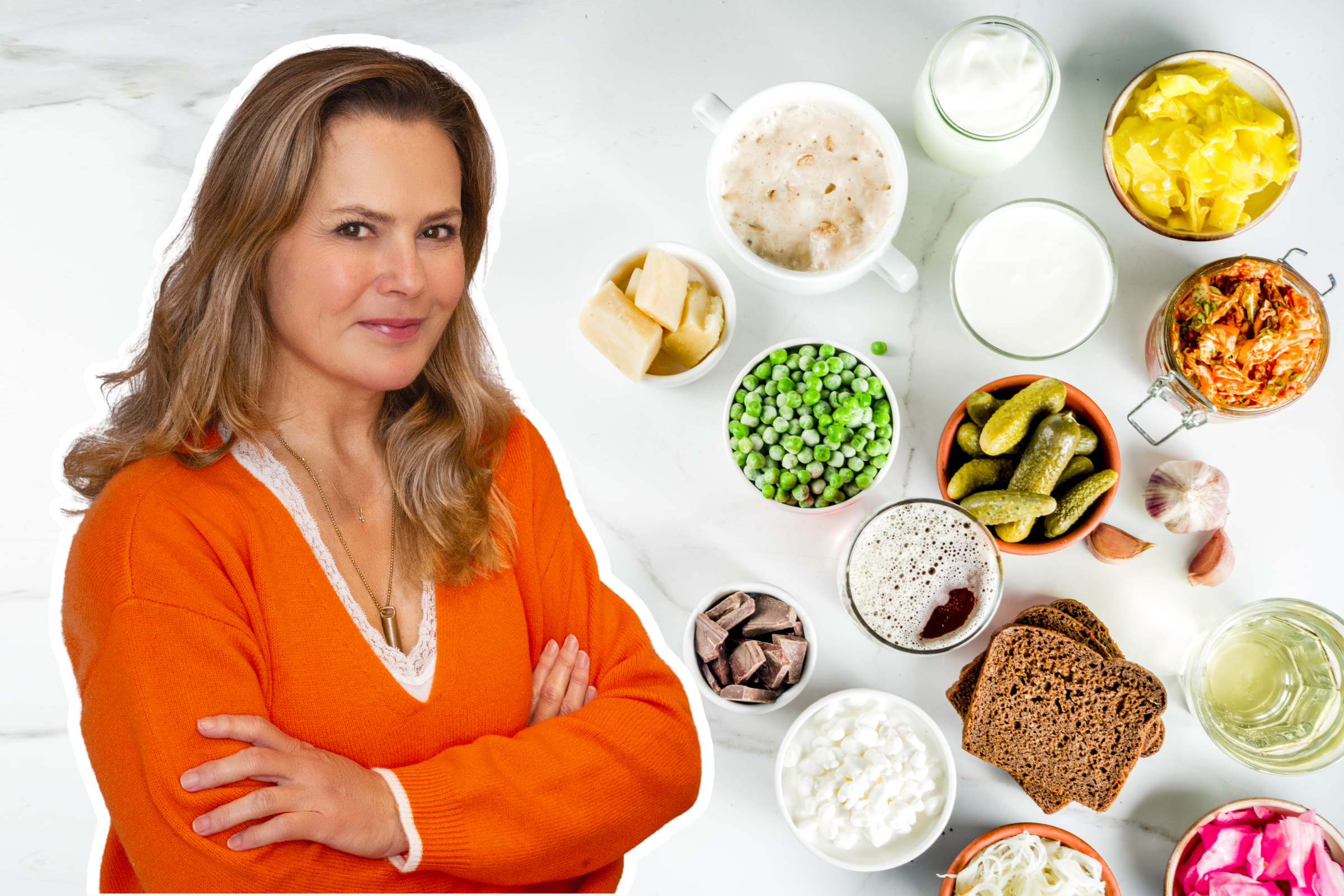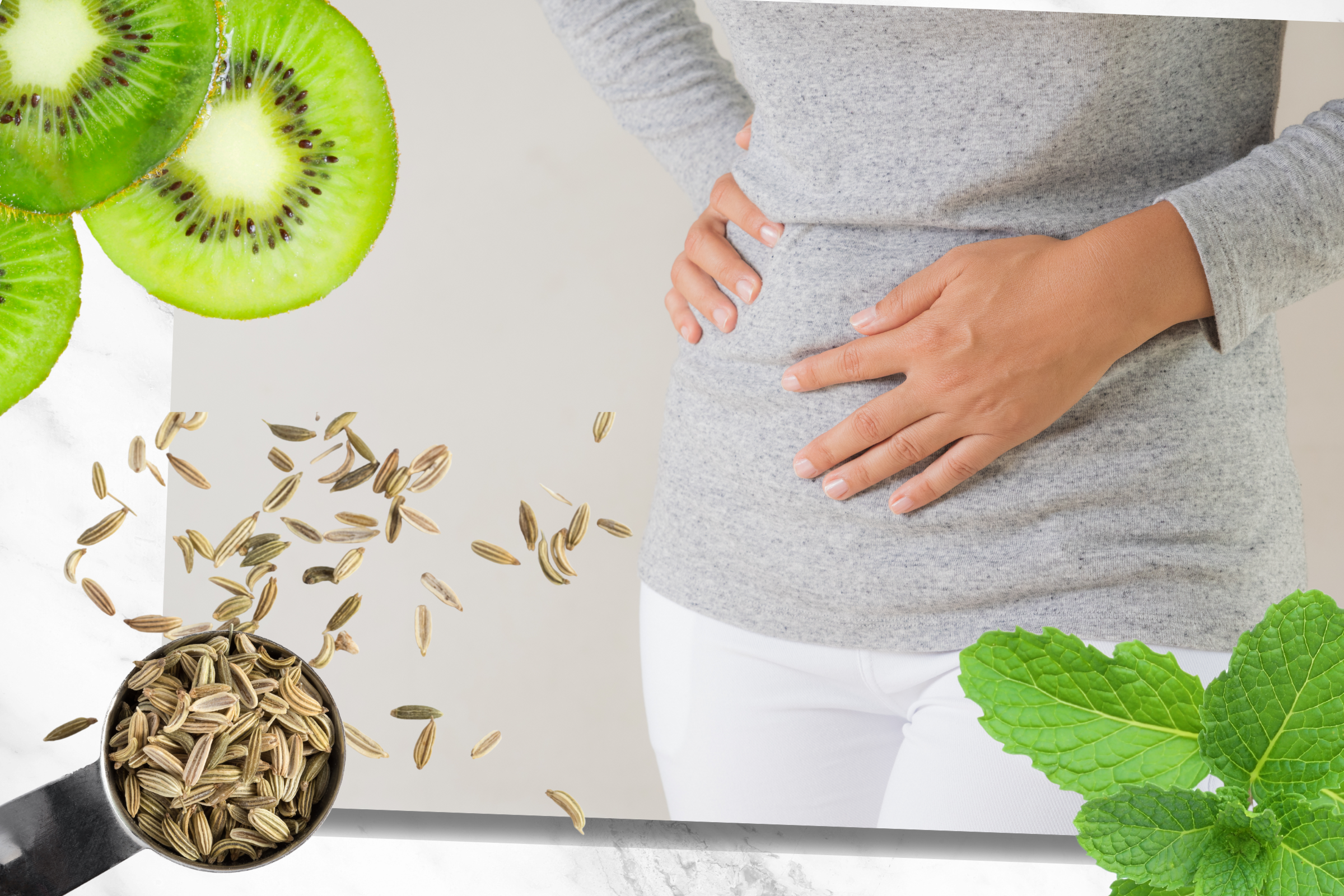3 easy ways to improve gut health – according to a wellness expert

Everyone seems to be jumping on the ‘gut health’ bandwagon right now, but with good reason.
Research is increasingly linking the health of our gut to so many other areas of our wellbeing – from our skin and immunity to digestion and even our mental health. But it can be overwhelming to know where to start with improving our gut health.
Here, we share the three simple things our founder, Liz Earle, recommends.
How to improve gut health – according to a wellness expert
The 5 Ks
No, not how far you should run around the park! Instead, the five Ks are fermented foods that have been shown to support our good gut bugs.
They include kimchi, a traditional Korean side dish made of vegetables, kefir, a type of fermented milk, and kraut (also known as sauerkraut), a fermented cabbage dish. There is also kombucha, made of fermented tea, and kamut – which is also known as sourdough bread.
Liz suggests eating or drinking a small amount of these fermented foods each day to give our gut microbiome a boost. This is because fermented foods contain living microbes, known as probiotics. These microbes set up camp in our gut, helping to increase the diversity of our gut microbiome.
“One of the biggest changes I’ve made to my diet over the years has been adding in many more fermented foods,” says Liz. “If you’re new to this, take it slowly. A sudden influx of even beneficial bacteria can cause digestive upsets!”
Supplements
Taking a prebiotic and a probiotic supplement can further help to support our gut health. Probiotics are the actual microbes, whereas prebiotics are the food that feeds them.
“Adding in a daily probiotic supplement can be especially helpful if you’re feeling in need of some powerful gut-friendly TLC, alongside adding in fermented foods and plant fibre,” says Liz. “When choosing a probiotic, look for the numbers of different strains it contains, as diversity of bacteria is now thought to be more important than the amount of colony-forming units (CFUs).”
We love Microbz’s range of probiotics (use the LIZLOVES affiliate discount code for 10% off) and Bimuno for prebiotic supplements (you can save up to 29% through our exclusive link here).
If you are prescribed antibiotics, Liz recommends taking a probiotic alongside to look after your gut. This won’t affect the action of the antibiotic. Take this as soon as you start your course and for at least a week afterwards.
Rest
As Liz explains, she likes to give her gut a break to allow the digestive system to rest and repair.
“Supporting our gut microbiome is more than just what we eat and drink,” she says. “When not to ingest anything is also important. Studies
show that intermittent fasting or time-restricted eating, is a crucial part of better gut health.
“When I interviewed award-winning bestselling medical doctor and author Dr Jason Fung, I was astonished to hear that intermittent fasting provides as much as 70 per cent of the value when it comes to gut health, managing insulin resistance and losing weight. That’s a staggering statistic – and a practice that’s so simple to do.
Time restricted eating gives our good gut bugs a chance to down their tools from daily activity and focus on replenishing themselves.
Studies show that eating within a 10 to 12 hour window (or smaller) can help to support the good gut bacteria involved with our metabolism. Not only that, but TRE may also help with our blood sugar response and help with weight loss.
This might sound difficult, but stopping eating at 7pm and starting by again at 7am the following day, would still give your gut a 12-hour break. Herbal teas and water wouldn’t break a fast either.
Read more in Health
- 10 ways to reduce your risk of Alzheimer’s naturally
- 6 myths about incontinence we need to stop believing
Please note, on some occasions, we earn revenue if you click the links and buy the products, but we never allow this to bias our coverage and always honestly review. For more information please read our Affiliate Policy.




